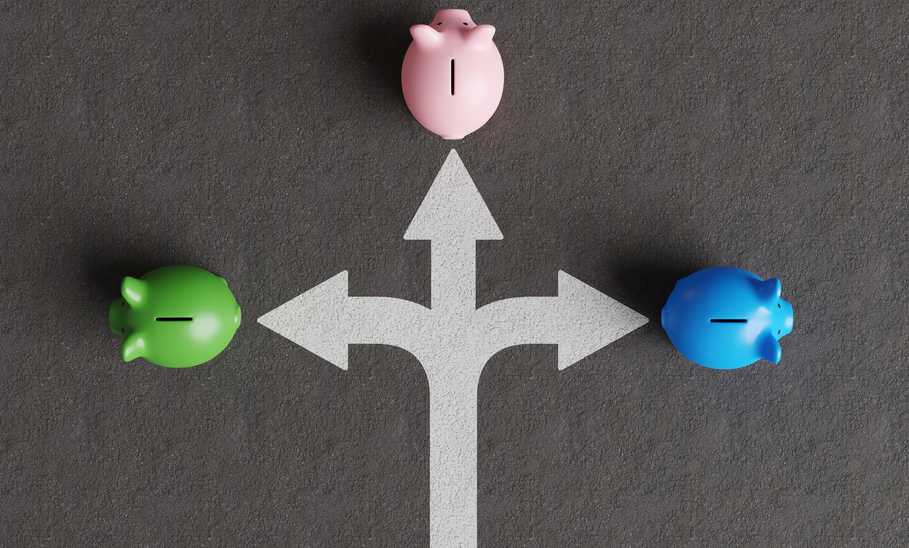- Risk-free up to $250,000 per depositor per institution
- Varying terms and rates for member savings strategies
- Higher rates than savings accounts
Share Certificates: Definition, Pros And Cons

Our evaluations and opinions are not influenced by our advertising relationships, but we may earn a commission from our partners’ links. This content is created by TIME Stamped, under TIME’s direction and produced in accordance with TIME’s editorial guidelines and overseen by TIME’s editorial staff. Learn more about it.
Share certificates are a type of savings product exclusively available at credit unions. They allow account holders to deposit funds for a set period (called the “term”). In return, credit unions pay a fixed annual percentage yield (APY), called a dividend. Share certificates are insured by the National Credit Union Administration (NCUA).
Banks offer a nearly identical savings product, but it is called a certificate of deposit (CD)—CDs also pay interest at a fixed APY for a fixed term. The major differences between share certificates and CDs are a result of the different business structures of credit unions and banks.
Credit unions are not-for-profit organizations owned by their account holders, who are referred to as members. When members join a credit union and deposit money, they become part-owners. Credit unions return profits to members through reduced fees and favorable savings and loan rates. The term “share certificate” reflects the members’ ownership interests in the credit union.
Credit unions are restricted from using the term certificates of deposits (CDs) due to a provision in the Truth in Savings Act. However, credit unions are permitted to use the term “certificates.”
Share certificates offer a fixed APY for a fixed term. The term lengths vary from a few months to up to ten years, depending on the credit union. Some credit unions may require a minimum deposit amount. Members must leave the money untouched for the duration of the term—or face an early withdrawal penalty. Depositors earn interest on the money, but credit unions call these payments dividends (rather than interest payments).
For example, First Tech Federal Credit Union offers a promotional 6-month certificate with an APY of 5.05% and a minimum deposit of $500.
From a tax perspective, dividends earned on share certificate deposits are considered interest payments. The dividends are reported on tax form 1099-INT, and account holders should report dividends as interest income on Schedule B, Interest and Ordinary Dividends, Part 1. This is the same as for CDs from a bank.
Credit union share certificates and bank CDs are basically equivalent financial instruments. The federal entity that insures them is different: The federal government insures share certificates and CDs up to $250,000, with banks being insured by the Federal Deposit Insurance Corporation (FDIC), while credit unions are insured by the National Credit Union Administration (NCUA). Another difference is that credit union members earn dividends, whereas bank customers earn interest.
| Share Certificates | Certificates of Deposit (CDs) | |
|---|---|---|
Availability | Credit unions | Banks |
Ownership | Credit union members | Bank customers |
Insurance provider | National Credit Union Administration (NCUA) | Federal Deposit Insurance Corporation (FDIC) |
Payments | Dividends | Interest |
Tax form | 1099-INT | 1099-INT |
Fixed rates. A fixed interest rate guarantees returns for the share certificate term.
Higher APYs. Share certificates offer opportunities to earn higher interest rates than share accounts with the same risk profile.
Savings options. Varying terms and APYs give conservative savers flexible options in helping with savings goals, such as short and long-term cash needs and savings ladders.
No fees. Share certificates typically charge no fees. Credit unions earn by lending deposits to borrowers at higher rates.
Insured. Share certificates have the full backing of the U.S. Government. Funds under $250,000 per depositor per credit union are federally insured.
Inability to access funds. Share certificates require you to leave the money in the account for a fixed time period; you cannot immediately access the funds without a penalty.
Interest rate risk. Fixed-rate share certificates do not benefit when interest rates rise.
Lower returns. Share certificate returns are conservative compared to other investments, such as long-term stock market and real estate returns.
Minimum balances. Most share certificates require a minimum balance, which may exclude some savers. Share certificates with higher rates may require a more significant minimum deposit.
Share accounts are credit unions’ equivalent to bank savings accounts. Depositing funds into these accounts makes you a member or shareholder at the credit union. The term “share account” reflects the members’ ownership stake in the credit union.
The U.S. has more than 4,500 credit unions providing members with varying share certificate terms and rate options. If you’re already a member, your credit union likely offers suitable choices. For those seeking a new credit union, shop around for one that is convenient and offers competitive rates. Here are some examples of share certificate terms and rates at recommended and popular credit unions.
| Credit Union | Term | APY | Min. deposit | Fees |
|---|---|---|---|---|
First Tech Federal Credit Union | 6-month | 5.05% | $500 | $0 |
Navy Federal Credit Union | 12-month | 5.3% | $50 | $0 |
MSU Federal Credit Union | 12-month | 4.25% | $50 | $0 |
PenFed Credit Union | 18-months | 4.00% | $1,000 | $0 |
Share certificates are nearly identical to CDs, but their terminology and government insurance providers differ. Whether you have a bank account or credit union membership, depositing your savings in risk-free options can help conservative savers and investors earn more interest on their money. Though share certificate durations limit the liquidity of these types of accounts, members can implement a share certificate ladder (like a CD ladder) to optimize returns and increase liquidity.
Share certificates and CDs are essentially the same financial instrument. Credit unions typically offer slightly higher interest rates because they pass profits on to their members through better rates (while banks pass on their profits to investors. However, many for-profit banks offer competitive CD rates, which may beat your credit union’s offerings. Shop around for the institution with the highest rates.
Members can cash out share certificates upon maturity. Credit unions often provide a seamless option to reinvest the funds at current rates when a share certificate matures.
To open a share certificate, you must open an account at a credit union. If you need help finding a credit union, you can use the NCUA credit union locator tool. Credit unions may limit membership based on eligibility, such as employment, military status, location, or organizational affiliation.
The information presented here is created by TIME Stamped and overseen by TIME editorial staff. To learn more, see our About Us page.



